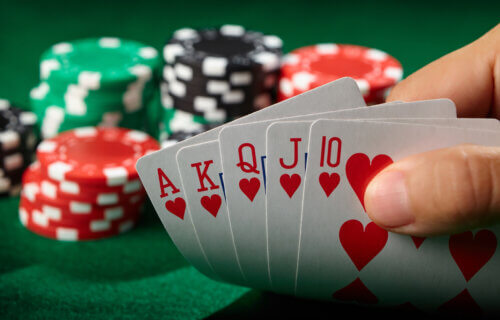LEICESTER, United Kingdom — There’s a controversial saying that “if you’re not cheating, you’re not trying.” But does winning really cause more people to cheat more? A new study is pushing back on a claim that winners are more likely to resort to underhanded tricks after tasting success.
In 2016, Israeli researchers claimed that winners of skill-based competitions were more likely to steal money in future games of chance against different opponents, as opposed to losers or people who didn’t see themselves as either a winner or loser. With these findings coming from a relatively small sample size, researchers believed that competitive winning causes a sense of entitlement that encourages cheating.
However, the new study by researchers at the University of Southern California and the University of Leicester found that people who believe in fairness cheat less.
“We were surprised by the findings in the 2016 study, and that’s why we wanted to replicate it with substantial sample sizes. The original study’s small samples do not have the statistical power to generate firm conclusions,” says study lead author Andrew Colman, a professor of psychology within Leicester’s Department of Neuroscience, Psychology and Behavior, in a university release.
Believing in inequality stops cheating
The team analyzed the behavior of 259 participants in a lab-based dice-rolling game — which was identical to the original Israeli study. They also looked at 275 participants playing a coin-tossing game in an additional online experiment.
Just like in the original study, researchers found a small but significant amount of cheating occurred when there was a monetary prize at stake. However, researchers say winning and losing didn’t increase the level of cheating or increase people’s sense of entitlement. Instead, the study pointed the finger at low “inequality aversion” as to why a small amount of people cheat.
Researchers say those with inequality aversion don’t like unequal outcomes. People with a strong sense of fairness are usually inequality averse. They avoid cheating because they think it’s unfair.
“We were amazed when it turned out that neither winning nor losing had any effect on cheating although a significant amount of cheating occurred,” notes Colman. “We have at least provided scientifically sound data that give a clear answer to the question.”
Colman believes that cheating is a growing stain on society. With notable incidents like the New England Patriots’ “spygate” scandal and the Houston Astros’ sign-stealing revelations, it’s hard to argue that point.
“Cheating and general dishonesty are of growing concern in the light of academic dishonesty in the digital age, problems of tax avoidance and evasion by wealthy people in developed economies, and more generally effects of widening inequality in wealth and income on corruption and crime,” the researcher concludes.
The findings appear in the journal Royal Society Open Science.

